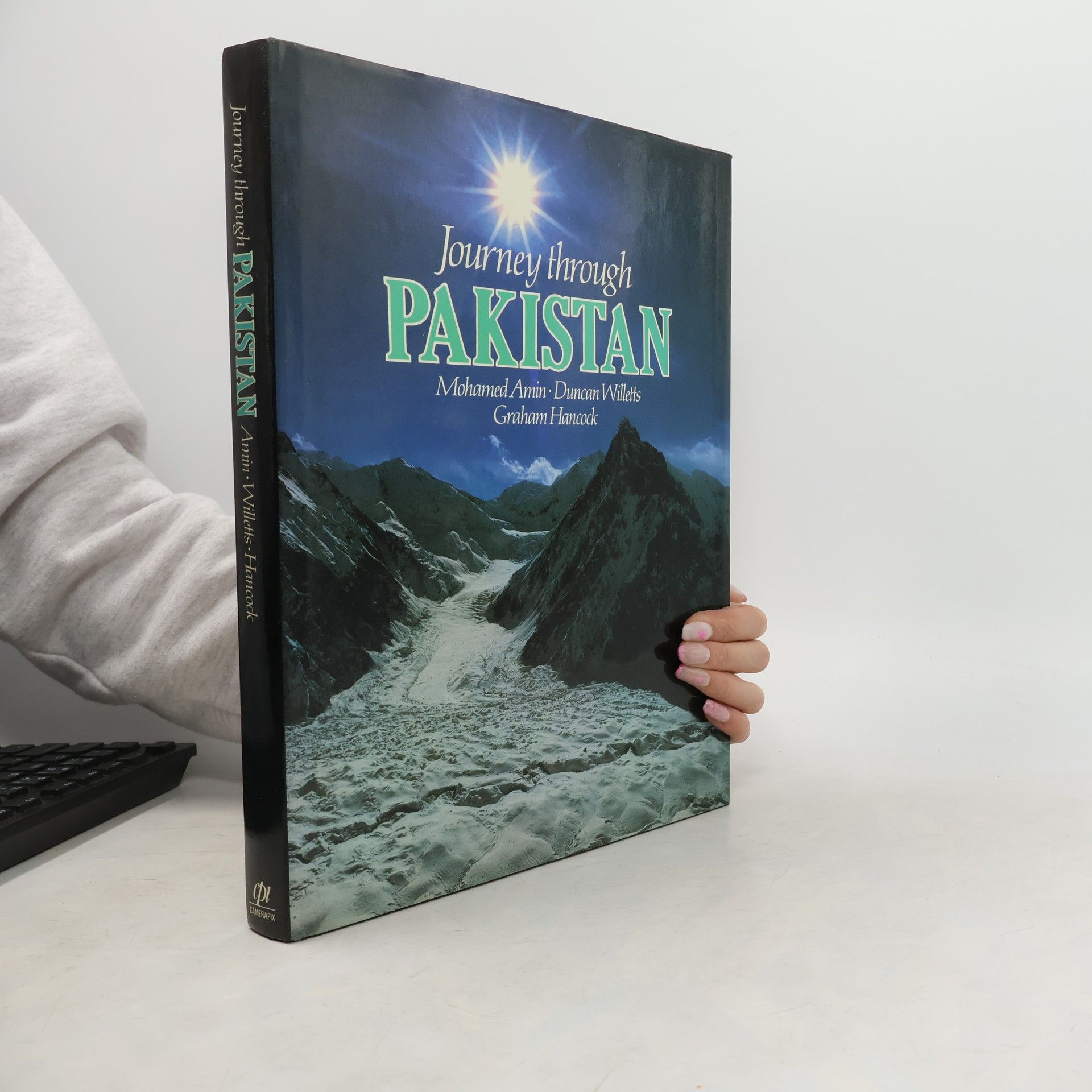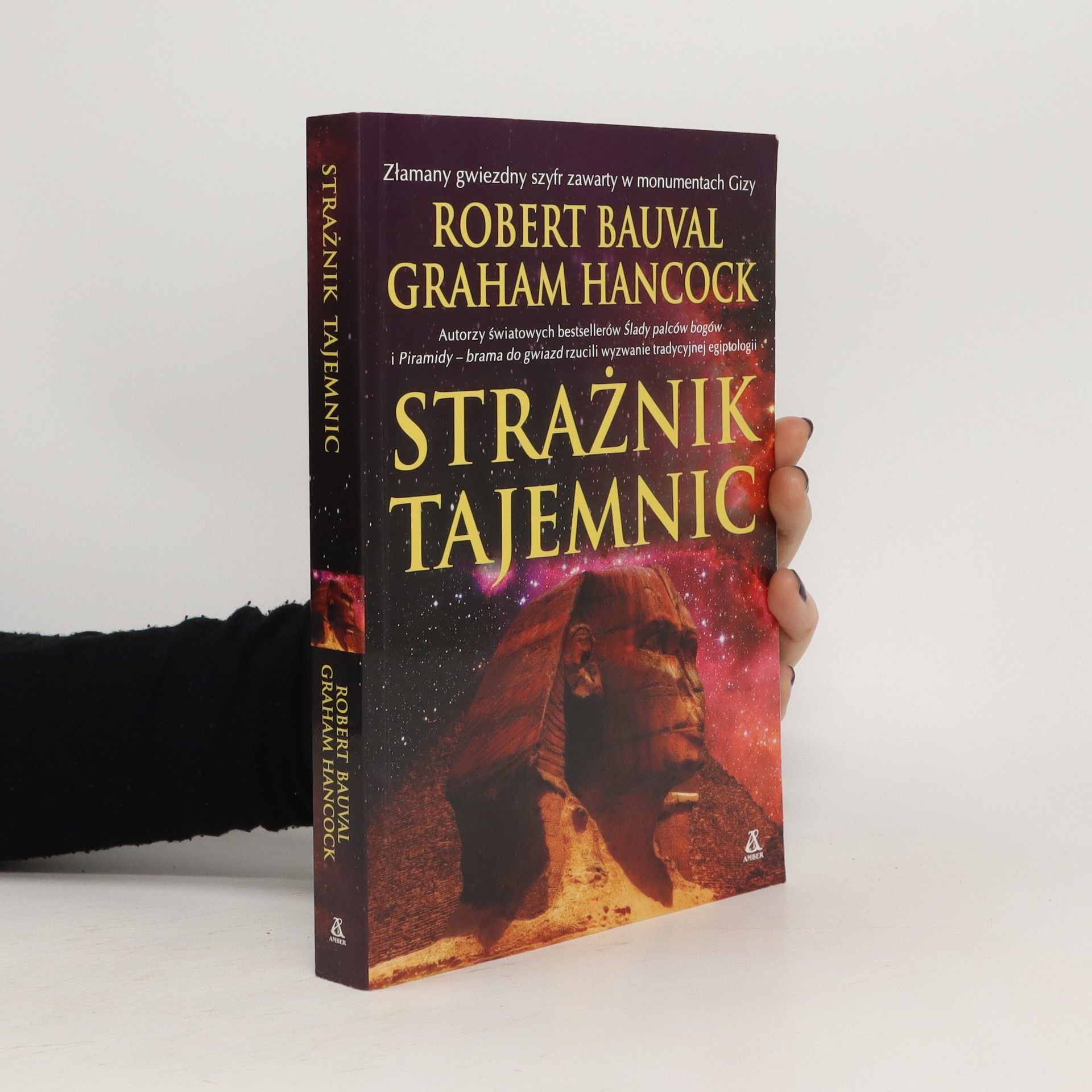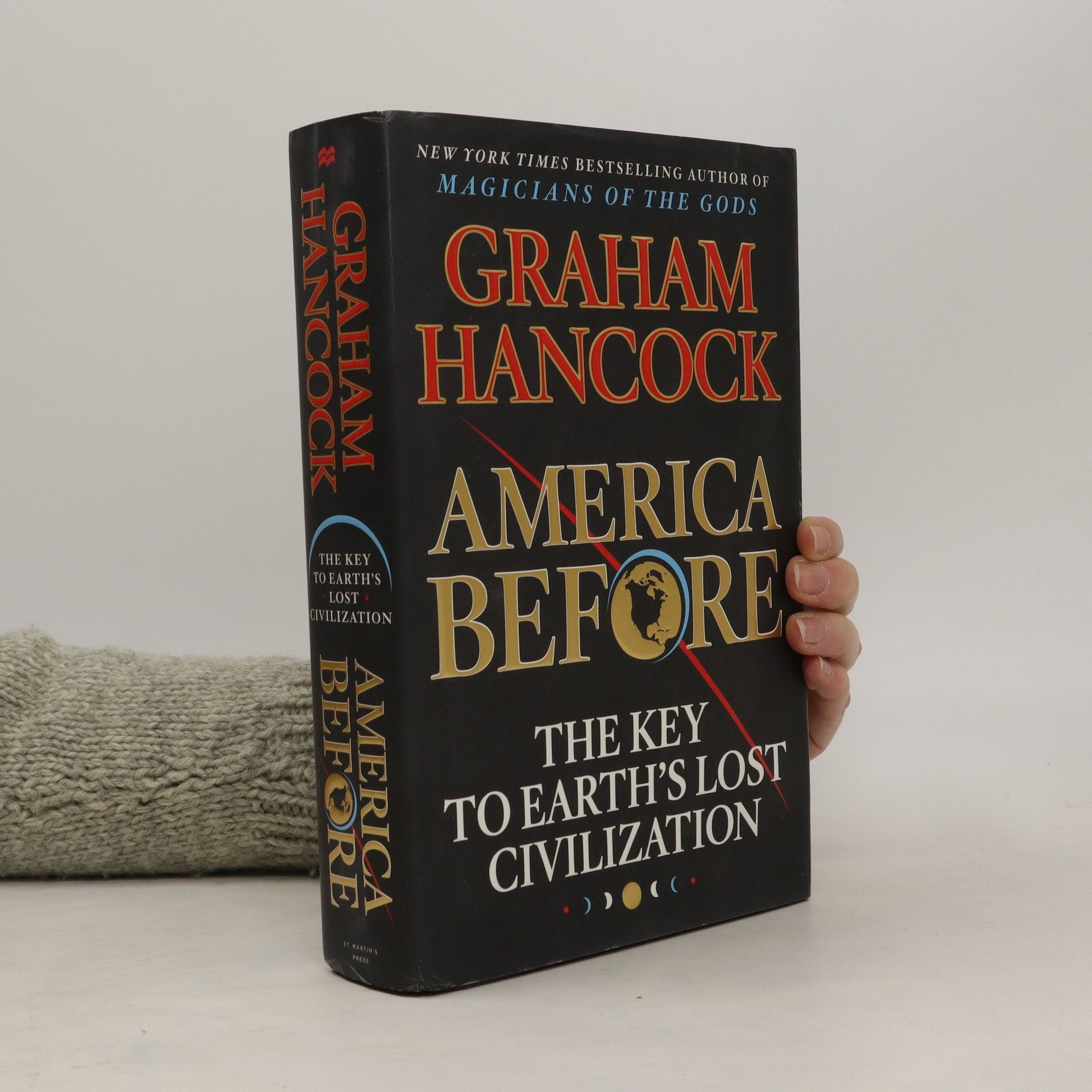Jedno z przełomowych wydarzeń intelektualnych naszych czasów. Sensacyjne dowody istnienia zaginionej, wysoko rozwiniętej prehistorycznej cywilizacji, która dała początek wszystkim starożytnym kulturom. Kontrowersyjny badacz prehistorii ludzkości, autor bestsellerów przetłumaczonych na 27 języków, w swojej pracy wysunął rewolucyjną hipotezę o początkach naszej cywilizacji, która zaszokowała świat nauki. Używając narzędzi astroarcheologii, geologii i analizy komputerowej starożytnych mitów, odkrywa nieznany obraz naszych dziejów. W starożytnych monumentach, takich jak egipski Sfinks czy ruiny andyjskiego Tiahuanaco, odkrywa ślady niezidentyfikowanej cywilizacji sprzed kilkunastu tysięcy lat – pramatki wszystkich kultur. Hancock ujawnia dowody jej wysokiego rozwoju i zaawansowanej wiedzy naukowej. Twierdzi, że zrozumienie prehistorii i znaczenia starożytnych mitów ujawnia ostrzeżenie przed cyklicznie nawiedzającym Ziemię kataklizmem. W kolejnych pracach odkrywa pradawną duchową wiedzę wpływającą na kultury Sumeru, Egiptu, Indii i Grecji, a także dowody na globalny kataklizm sprzed 12 000 lat, z którego ocaleli nieliczni, nazywani w starożytnych tekstach magami bogów.
Graham Hancock Book order (chronological)
Graham Hancock is a British writer and journalist who primarily explores unorthodox theories about human history and archaeology. His works investigate the possibilities of lost advanced civilizations, interpreting ancient myths and monuments as evidence of forgotten knowledge. Hancock's style is often provocative, as he challenges conventional historical narratives and urges readers to re-evaluate our understanding of the past. His writing appeals to those intrigued by historical mysteries and seeking alternative perspectives on the origins of human civilization.







LEGO Heroes
- 112 pages
- 4 hours of reading
"LEGOa Heroes is a collection of twelve remarkable stories about everyday heroes using the LEGOa system in unique ways to solve some of life's greatest challenges"--
Jak oficjalna nauka fałszuje prawdziwe początki cywilizacji. To nieprawda, że Egipcjanie zbudowali piramidy, a Atlantyda to mit! Historycy i archeolodzy zatajają dowody odmiennej niż uznana, wersji przeszłości. Nasi prehistoryczni przodkowie dysponowali samolotami i bronią jądrową. Opis Atlantydy pozostawiony przez Platona jest prawdziwy, a japońskie podwodne ruiny to ślady starożytnej Lemurii. W Gizie istniała elektrownia - taka była prawdziwa funkcja Wielkiej Piramidy. Ludzie kontaktowali się z mieszkańcami innych planet, a w Egipcie, Indiach, Japonii i obu Amerykach napotykamy starożytne artefakty świadczące o zaawansowaniu technologicznym ich twórców. Wyniki badań prowadzą do wniosku, że nasza cywilizacja jest o wiele starsza, niż twierdzi nauka. Na Ziemi kwitła przed tysiącami lat cywilizacja - źródło wszystkich starożytnych kultur. Dlaczego naukowcy ukrywają świadectwa jej istnienia? Zebrano czterdzieści dwa artykuły nieortodoksyjnych badaczy, którzy przedstawiają alternatywną wizję dziejów, nowe dowody oraz argumenty. Demaskują zmowę naukowego establishmentu i ujawniają, dlaczego oficjalna nauka uznaje Atlantydę za mit, co zataja i odrzuca, obejmując różne dziedziny, od archeologii po astronomię.
Prawdziwe przeznaczenie piramid i Wielkiego Sfinksa ujawnione! Autorzy bestsellerów rzucili wyzwanie tradycyjnej egiptologii. Wielki Sfinks, spoglądając na wschód, odczytuje zapomniane przesłanie z gwiazd, które domaga się zrozumienia. Robert Bauval, legenda niezależnej egiptologii, oraz Graham Hancock, kontrowersyjny badacz prehistorii, na podstawie badań archeoastronomicznych dowodzą, że Sfinks jest o tysiące lat starszy, niż twierdzi współczesna nauka — powstał nie 2500 lat p.n.e., lecz 8000 lat wcześniej, na początku astronomicznej ery Lwa. Piramidy są dokładną gwiezdną mapą Pasa Oriona sprzed 12 500 lat, zamkniętą w 15 000 000 ton kamiennych bloków, niosącą przesłanie ich budowniczych. W mistrzowskim śledztwie Bauval i Hancock używają komputerowych symulacji, aby złamać starożytny gwiezdny szyfr zawarty w monumentach Gizy i reinterpretować Teksty Piramid oraz inne egipskie zapisy. Odkrycie otwiera drzwi do zaginionego rozdziału historii i nieznanych początków cywilizacji. W bestsellerze podano sensacyjne dowody istnienia zaginionej, wysokorozwiniętej cywilizacji, która dała początek wszystkim starożytnym kulturom. Kontynuując śledztwo, udowadnia, że globalny kataklizm nastąpił 12 000 lat temu, a ocaleli nieliczni nazywani byli magami bogów.
Visionary: The Mysterious Origins of Human Consciousness (the Definitive Edition of Supernatural)
- 640 pages
- 23 hours of reading
Originally published in 2007, this work explores the realm of the supernatural, delving into various phenomena and beliefs that challenge the boundaries of reality. It offers insights into the mysteries of the unseen world, blending historical accounts with contemporary interpretations. The narrative invites readers to question their perceptions and consider the implications of supernatural experiences on human understanding and culture. Engaging and thought-provoking, it serves as a gateway to exploring the enigmatic aspects of existence.
Kontynuacja kultowego dzieła, które sprzedało się w 10 milionach egzemplarzy, przynosi nowe dowody na poparcie rewolucyjnej hipotezy o początkach naszej cywilizacji. Graham Hancock, jeden z najwybitniejszych i najbardziej kontrowersyjnych badaczy dziejów ludzkości, w swojej nowej książce kontynuuje naukowe śledztwo, które rozpoczął dwadzieścia pięć lat temu. W Magach bogów dzieli się swoimi najnowszymi odkryciami, dokumentując je po raz pierwszy publikowanymi zdjęciami oraz nowymi dowodami, które sugerują, że zaawansowana cywilizacja epoki lodowcowej została zniszczona globalnym kataklizmem między 12 800 a 11 600 lat temu. Gigantyczna kometa uderzyła w Amerykę Północną i Europę, wywołując potop, którego echa znajdujemy w mitach różnych kultur. Platon wskazuje ten czas jako moment zagłady Atlantydy. Nieliczni ocaleńcy, znani jako Magowie, Mędrcy czy Tajemniczy Nauczyciele, osiedlili się w miejscach takich jak Göbekli Tepe, Baalbek, Giza, Mezopotamia, Meksyk i Peru, przekazując ludzkości swoją wiedzę i ostrzeżenia. Fragment komety sprzed 12 000 lat wciąż krąży w kosmosie, a astronomiczne wiadomości zaszyfrowane przez „Magów Bogów” w różnych starożytnych lokalizacjach sugerują, że kolejny kataklizm może nastąpić w naszych czasach.
ŚWIATOWY BESTSELLER KONTROWERSYJNEGO BADACZA PREHISTORII LUDZKOŚCI SPRZEDANYCH W 10 MILIONACH EGZEMPLARZY. Sensacyjne dowody na istnienie zaginionej, wysoko rozwiniętej prehistorycznej cywilizacji, która dała początek wszystkim starożytnym kulturom. Czy historia ludzkości może być o tysiące lat starsza, niż dotychczas sądzono? GRAHAM HANCOCK, jeden z najbardziej kontrowersyjnych badaczy prehistorii, przedstawia rewolucyjną hipotezę o prawdziwych początkach naszej cywilizacji, która zaszokowała świat nauki. Używając narzędzi astroarcheologii, geologii i analizy komputerowej starożytnych mitów, łączy fakty jak puzzle, odsłaniając nieznany obraz historii ludzkości. W monumentach starożytnych kultur, takich jak egipski Sfinks czy ruiny andyjskiego Tiahuanaco, odkrywa ślady niezidentyfikowanej cywilizacji sprzed kilkunastu tysięcy lat oraz dowody jej wysokiego rozwoju i zaawansowanej wiedzy naukowej. Hancock podkreśla, że poznanie prawdy o prehistorii i zrozumienie znaczenia starożytnych mitów i budowli ujawnia ostrzeżenie przed cyklicznymi kataklizmami, które mogą się powtórzyć.
America Before: The Key to Earth's Lost Civilization
- 608 pages
- 22 hours of reading
Provides a fascinating, alternative version of prehistory. New discoveries have radically reshaped the long-established picture and we know now that the Americas were first peopled more than 130,000 years ago - many tens of thousands of years before human settlements became established elsewhere
Until recently, it was widely believed that humans first entered the Americas from Siberia around 13,000 years ago via the Bering landbridge, spreading throughout Central and South America over the following millennia. This consensus led to a lack of exploration into the Americas' role in human origins and civilization. However, recent scientific advancements and archaeological findings have revealed that humans inhabited the Americas for tens of thousands of years earlier than previously thought. Unexpected genetic links have emerged, connecting Native Americans with Australian Aborigines and Western Europeans. This shift in understanding indicates that humans may have been present in the Americas for at least 50,000 years, prompting questions about what these 'lost Americans' were doing during the unexplored millennia when they were believed to be absent. The recent discoveries challenge scholars to reconsider what evidence may have been overlooked, particularly regarding the origins of civilization. This raises the intriguing possibility that significant insights into early human history could still be uncovered in North America, a region previously deemed unlikely to hold such revelations.
America Before
- 608 pages
- 22 hours of reading

